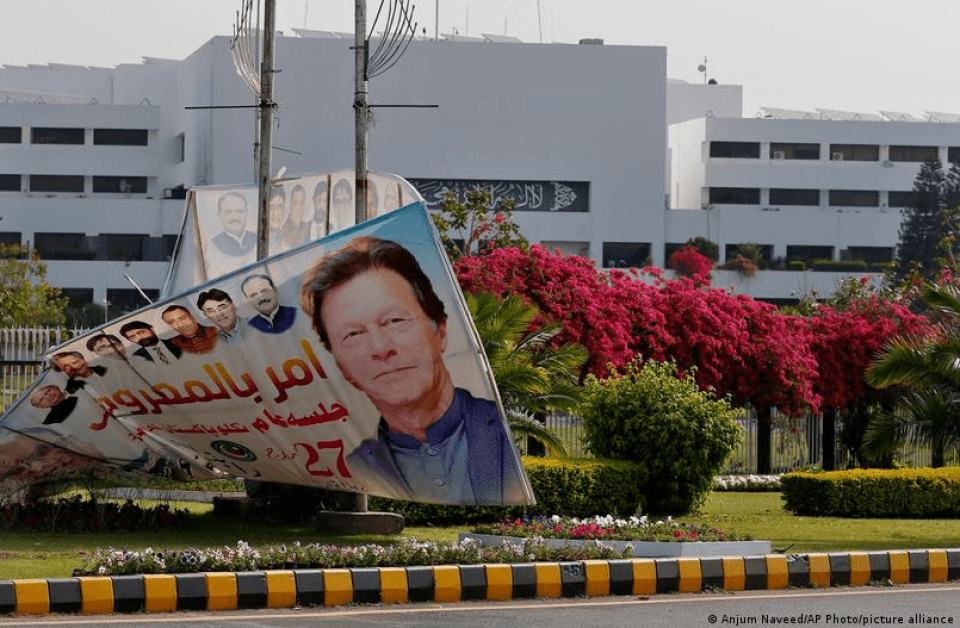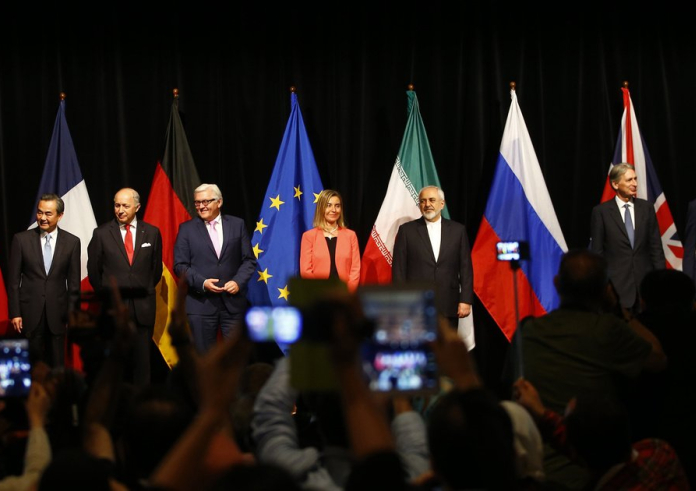by : That’s Enough Editorial Team
Pakistani Prime Minister Imran Khan blamed Washington's arrogant attitude towards Islamabad's independent foreign policy after the Supreme Court ruled in favor of dissolving parliament and government, saying "Pakistani people are not slaves to anyone, the United States has insulted our people and Pakistan will never accept an imported (imposed) government." He also claimed that the Americans were aware of the conspiracy of the opposition against the Prime Minister and that even their diplomats had secretly met with members of parliament in Islamabad. Accordingly, Imran Khan called on the Pakistani people and his party supporters to hold nationwide demonstrations against the imposition of the government from abroad.

The political crisis in Pakistan began when the National Assembly voted on no-confidence plan of Imran Khan as prime minister. In return, Imran Khan called for the dissolution of parliament and early elections. In a speech broadcast on public television, Khan said he called on President Aref Alavi to dissolve parliament. He added: "We appeal to the citizens, organize the elections and leave the decision to the nation." However, Imran Khan's popular party, the Insaf Movement, which had lost its parliamentary majority a few days earlier, failed to take any effective action and prevent a no-confidence vote.
Former cricket star Imran Khan is currently facing the most serious political crisis since his election in 2018, when opponents accused him of economic mismanagement coupled with high inflation, the devaluation of the rupee exchange, widespread debt, and strategic mistakes in foreign policy. The fact is, however, that Khan government inherited a large budget deficit when it came to power in 2018. Pakistan's economy is heavily dependent on imports, and in recent months the government has spent a large portion of its reserves on energy imports. Thus, Imran Khan blames the main cause of the political crisis in Pakistan not on economic conditions, but on US intervention. According to him, the Americans are angry that the Pakistani government is not in line with Washington's position on Russia and China. The fact is that since the end of the US military presence in Afghanistan, which lasted 20 years, relations between the two countries have faced new tensions.
At the same time, changing Pakistan's strategy toward China and Russia has helped escalate tensions with the United States. China has doubled its investment in Pakistan and Islamabad has become a major part of China's belt and road project. The China-Pakistan Economic Corridor includes more than $ 30 billion worth of Chinese investment in the country. Pakistan's relations with Russia have also grown significantly in recent years. Imran Khan's visit to Moscow on February 24 and meeting with Putin was the first visit of a Pakistani Prime Minister in 23 years to Russia. The main purpose of the trip was to sign an agreement on the vital North-South Pakistan gas pipeline project. However, Khan's visit to Moscow was seen by many as Islamabad's support for Russia in its war with Ukraine. Imran Khan, meanwhile, has repeatedly criticized the role of the United States in Pakistan. For example, in a private speech to the Islamabad Security Council, Khan highlighted Pakistan's need for self-reliance and the negative effects of its past cooperation with the United States. He claimed that the Pakistani elites had sold the country to Washington in exchange for help and support. Not only have Imran Khan's remarks never been made public in the past, but he has also portrayed the relationship with the United States as a damaging one that has had no positive aspects for the country.
At the same time, some believe that Imran Khan has lost the vital support of the army, which is the key to Pakistan's political power, and has therefore entered into this deep political crisis. In Pakistan, which has been ruled by the military for nearly half of its history, the armed forces have always played a prominent political role; even when civilian governments were in power. The military supported Imran Khan as prime minister in 2018 and widely played a key role in helping him win. However, this support now seems to be declining. Gen. Qamar Javid Bajwa, as commander of the armed forces, has stopped supporting the Khan government since earlier this year, and there has been speculation that the military has not agreed to his visit to Moscow. Especially the military sought to improve relations with the United States. However, Imran Khan denied the allegations in a speech on March 31, 2022, saying that he had met only after consulting with the army and the diplomatic corps. According to many, Bajwa's remarks at the Islamabad Security Conference and his political neutrality just one day before the House of Representatives's vote of no confidence in Imran Khan had clear political messages for the opposition.
Consideration and Theory
- Although none of the opposition leaders do not possess Imran Khan's rhetorical skills and political intelligence, and Imran Khan's chances of continuing to rule were high due to the weakness and fragmentation of opposition political parties, Imran Khan was ousted, and the new government was formed by Shehbaz Sharif, the brother of former Prime Minister Nawaz Sharif, who was ousted in 2017 on charges of corruption. Of course, people like Balawal Bhutto Zardari from the Pakistan People's Party, the son of the late Prime Minister Benazir Bhutto, as well as former President Asif Zardari, could have taken over, but that did not happen.
- The former Prime Minister of Pakistan was under intense pressure from opposition parties as they abandoned their internal divisions and united against him, eventually seizing power from him. The difference between the approaches of Imran Khan and the Pakistani opposition leaders is quite clear. While he explicitly states that we are not slaves to the West, Shahbaz Sharif, the leader of Nawaz Party, emphasizes that one cannot take a step without the support of the United States.
- Of course, in a high-risk scenario, it was possible for the Pakistani military to seize power to end the political stalemate in the country, but the military has so far largely avoided political conflict and avoided to side with either party. It should be noted, however, that since independence in 1947, Pakistan has witnessed four successful military coups and a similar number of failed attempts, and the military has ruled the country for three decades.

















